
He’s best known for crafting courtroom dramas. But longtime “Law & Order” showrunner and head writer René Balcer’s latest project takes on a different kind of drama: the escape of European Jews to Shanghai on the eve of World War II.
Balcer tells the real-life stories of Jewish refugees and the Chinese residents of Shanghai who helped them in “Above the Drowning Sea,” a feature-length documentary that follows the refugees’ voyage from Nazi-controlled Europe to the east coast of China. The film, narrated by actress Julianna Margulies, will screen on Oct. 5 at USC’s Annenberg Auditorium, as a joint presentation by the USC Shoah Foundation, USC Pacific Asia Museum and the US-China Institute.
Getting out of Europe required a visa from a foreign country, and that’s where Ho Feng-Shan came in. The Chinese consul-general in Vienna defied the Gestapo and his own government to issue as many as 3,000 visas to the refugees.
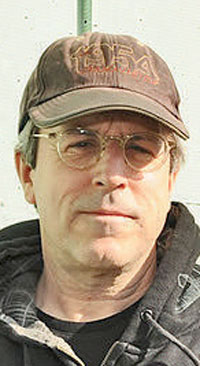
Balcer, who wrote and directed the film with longtime collaborator Nicola Zavaglia, became interested in the subject while visiting the Shanghai Jewish Refugees Museum, housed in a former synagogue. Balcer’s wife is Chinese, and her father grew up in Shanghai.
“The documentary, to me, was a way of looking at today’s refugee crisis through a historical lens and see what history could teach us,” Balcer said in an interview in his office at the couple’s Brentwood apartment.
Strewn about the office are piles of scripts and research material for television projects, including the upcoming “Law & Order True Crime: The Menendez Murders,” an eight-episode NBC series for which Balcer served as executive producer. It recounts the 1990s case of brothers Lyle and Erik Menendez, who were sentenced to life in prison without the possibility of parole for killing their parents.
Such true-crime fare seems like a far cry from “Above the Drowning Sea,” but Balcer always has sought out captivating historic figures. He chronicles the intricate history of Japanese-Jewish relations as effortlessly as he recites the history of race relations in his home country of Canada. Besides winning an Emmy Award, a Peabody Award, a Writers Guild of America Award and four Edgar Awards for his television work, Balcer has written and produced award-winning documentaries on art and China.
Balcer shot “Above the Drowning Sea” in six countries on four continents. Among the stories told in the film is that of William Eisner, who left Austria at age 6 and traveled with his family to Shanghai in 1939. He and his son Keith Eisner recount the harrowing journey and the help he got from the Chinese.
“I feel a sorrow for his lost childhood. It was all ripped away, everything was,” Keith Eisner says in the film. Balcer has a personal connection with the younger Eisner: He once hired him to help write an episode of “Law & Order.”
Jerry Moses, born in 1934, recounts a fearful childhood in Breslau, Germany. “I always thought I was going to die. I didn’t think about toys, only death,” he says. He left Shanghai in 1947 for Chile and later worked in Los Angeles in real estate and the clothing business.
Lotte Marcus remembers her family scrambling to find a consulate that would offer them visas. After hearing of her uncle’s death at Dachau, then a labor camp, their plight became extreme. In 1939, her parents sewed diamonds into their coat linings and fled Austria with Lotte, then 11 years old.
The world turned its back on Jewish refugees, and in the summer of 1938, delegates from 32 countries met at the French resort of Evian. The delegates expressed sympathy for the German-Jewish refugees, but most countries, including the United States and Great Britain, were unwilling to ease their immigration restrictions.
Ho’s decision to help Jews escape Vienna is especially remarkable considering the Chinese nationalist government’s close ties to Nazi Germany. Hitler even trained and supplied the Chinese soldiers in their fight against the Communists. But after witnessing Kristallnacht in November 1938, in which Jewish homes, shops and synagogues were destroyed, Ho decided to help the Jews get to Shanghai.
“Great humanitarian acts aren’t necessarily the product of governments. It’s usually the product of thousands of individuals performing small acts of charity and compassion. And that’s really what we found in this,” Balcer said.
When the Nazis took over the building that held the consulate, Ho opened his own office, even setting up shop at a nearby restaurant. He became known as the Chinese Oskar Schindler.
After weeks at sea, the refugees found Shanghai to be “a city in chaos,” Marcus recalled. “The streets were loaded with cars, rickshaws, pigs, farmers carrying chickens. It was a mass of people. … We saw dead babies just lying on the street.”
Years of foreign invasion, civil war, Western occupation, poverty and famine had made Shanghai an “open city” where no one checked the passports of new arrivals. In total, more than 20,000 European Jews found safe haven there before and during World War II.
Many settled in the city’s Hongkou District, where they opened watch repair shops, photography studios and other speciality stores. They did business with the Chinese and their children played together. After the Japanese invasion, the Jews were forced into an overcrowded ghetto of approximately 1 square mile.
In one moving scene in the film, two childhood friends, one Jewish and one Chinese, are reunited after decades apart. They pore over old photographs and eat challah, recalling their time spent together during the war.
Stories like theirs are in danger of being lost. It’s why Balcer wanted to make a film about Shanghai’s Jews now — and to highlight the connection to Europe’s current migrant crisis.
Making the documentary, Balcer said, “was a way of looking at today’s refugee crisis through a historical lens and seeing what history could teach us. Because history doesn’t necessarily repeat, but it rhymes.”
“Above the Drowning Sea” will screen at 6 p.m. Oct. 5 at USC’s Annenberg Auditorium, and will be followed by a panel conversation. For more information, go to abovethedrowningsea.com.
.









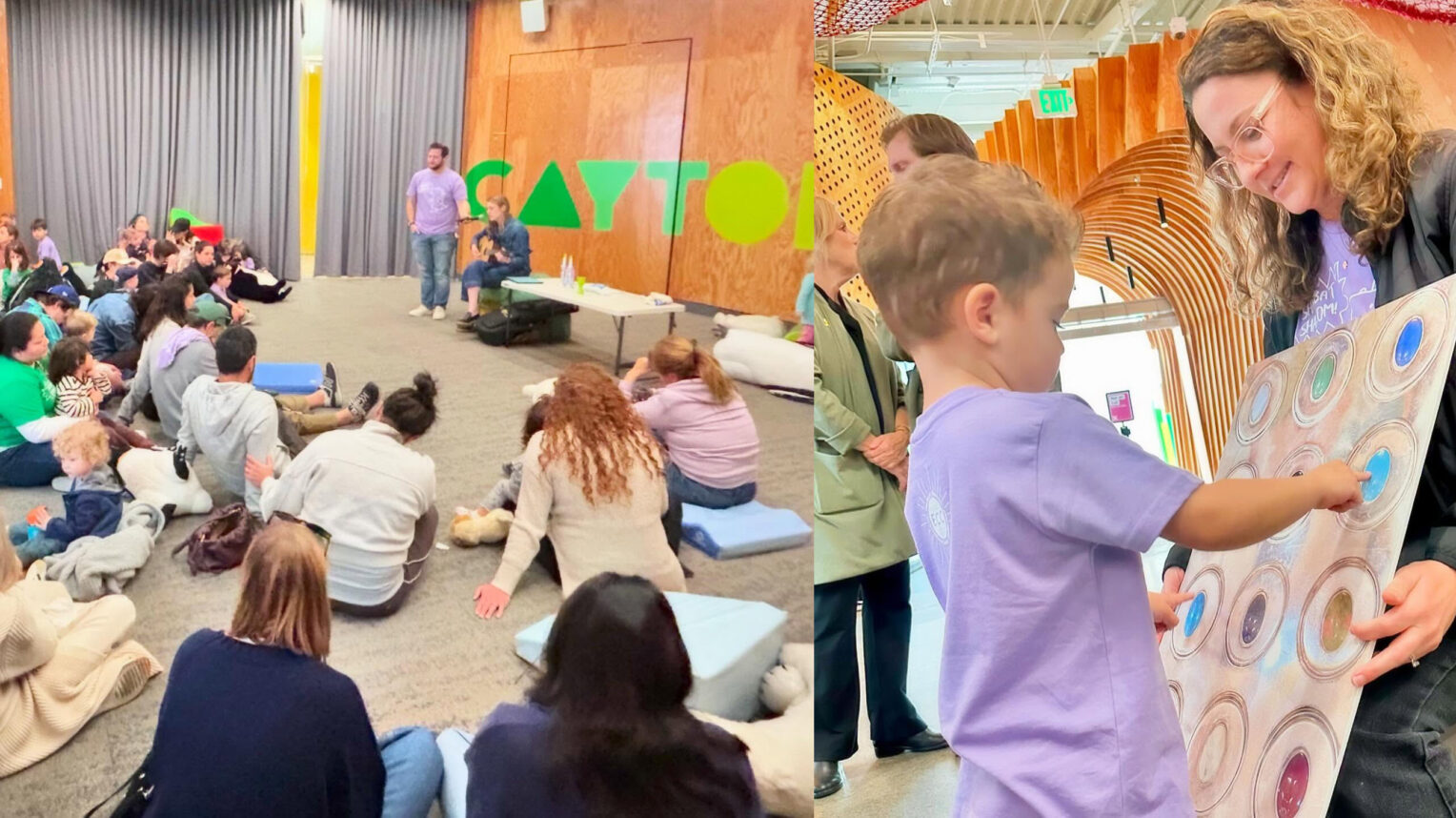

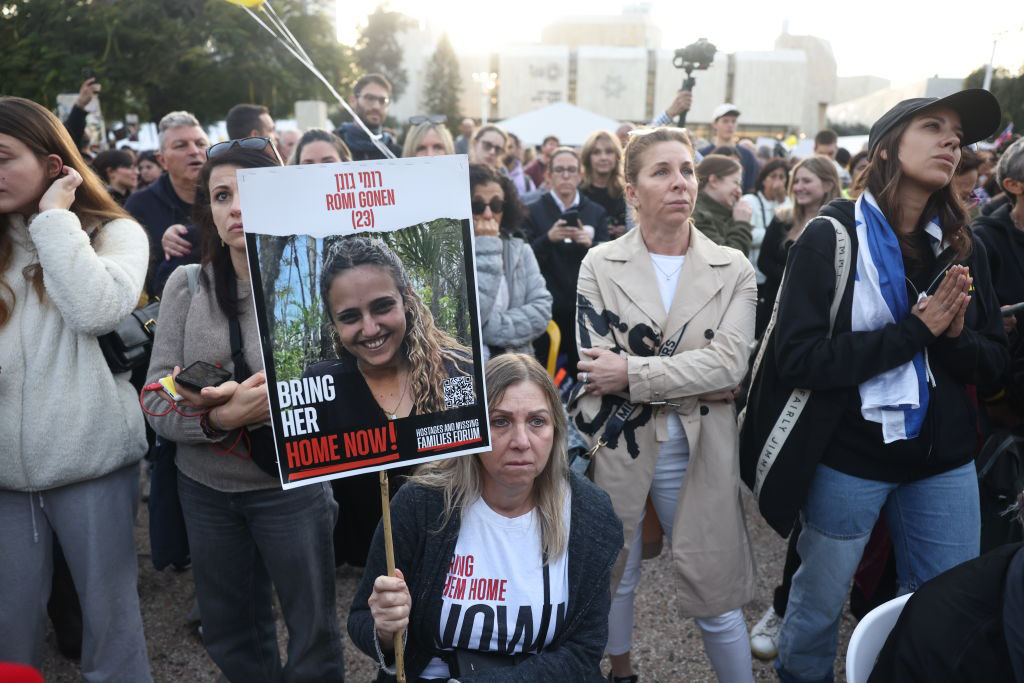

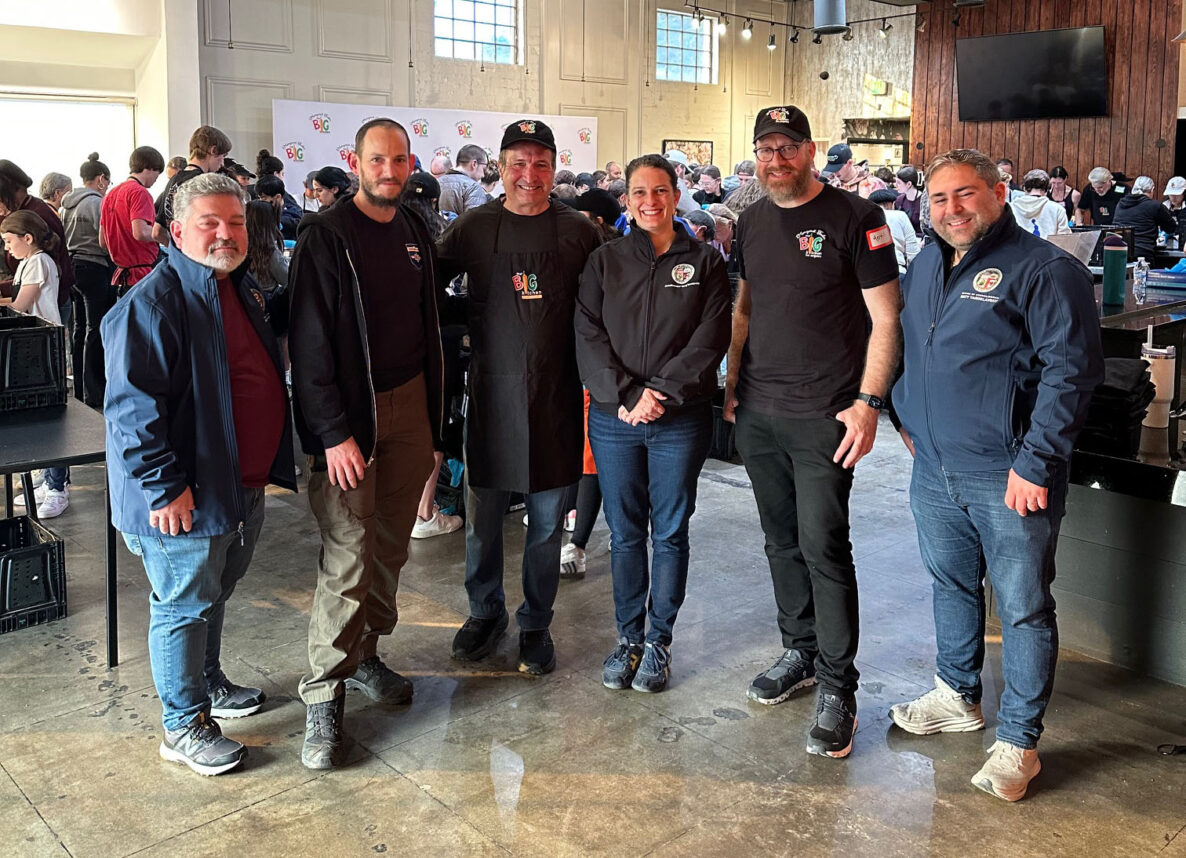
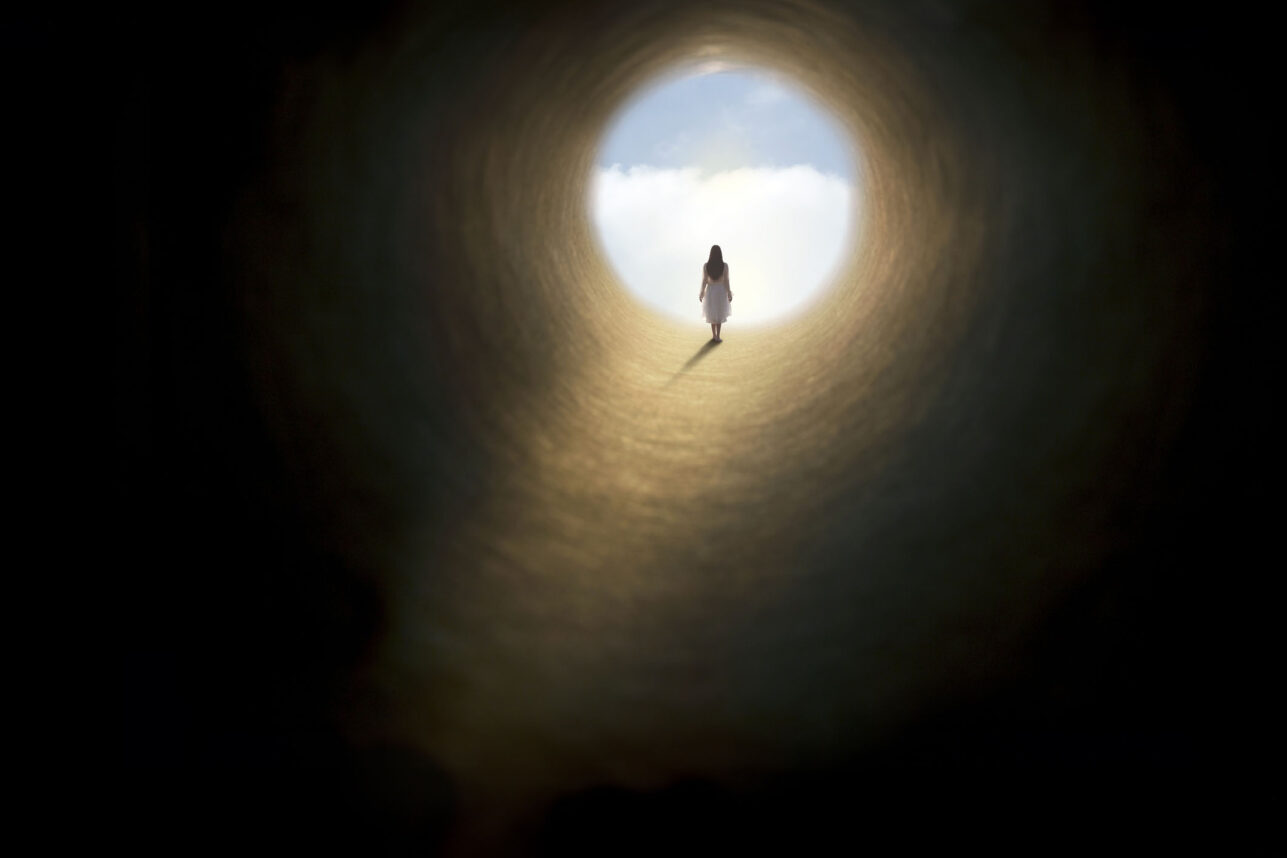






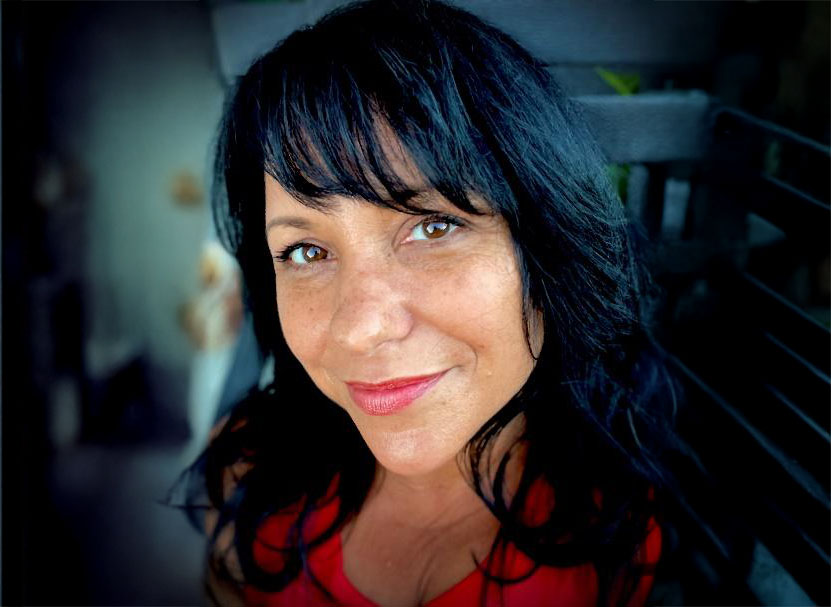

 More news and opinions than at a Shabbat dinner, right in your inbox.
More news and opinions than at a Shabbat dinner, right in your inbox.